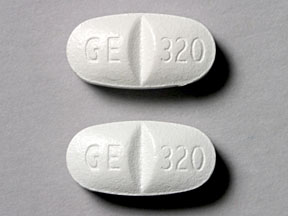Factive Interactions
There are 503 drugs known to interact with Factive (gemifloxacin), along with 9 disease interactions, and 1 alcohol/food interaction. Of the total drug interactions, 112 are major, 320 are moderate, and 71 are minor.
- View all 503 medications that may interact with Factive
- View Factive alcohol/food interactions (1)
- View Factive disease interactions (9)
Most frequently checked interactions
View interaction reports for Factive (gemifloxacin) and the medicines listed below.
- Aerius (desloratadine)
- Alcohol (contained in alcoholic beverages) (ethanol)
- Alka-Seltzer Gold (citric acid / potassium bicarbonate / sodium bicarbonate)
- alpha-lipoic acid
- Augmentin (amoxicillin / clavulanate)
- Bactrim (sulfamethoxazole / trimethoprim)
- Benadryl (diphenhydramine)
- Carafate (sucralfate)
- ceftazidime
- Claritin (loratadine)
- colchicine
- Cymbalta (duloxetine)
- Dexilant (dexlansoprazole)
- diclofenac
- Diflucan (fluconazole)
- escitalopram
- Flagyl (metronidazole)
- Flomax (tamsulosin)
- gabapentin
- Gaviscon Regular Strength Liquid (aluminum hydroxide / magnesium carbonate)
- Glucosamine & Chondroitin with MSM (chondroitin / glucosamine / methylsulfonylmethane)
- levothyroxine
- Lipitor (atorvastatin)
- Lunesta (eszopiclone)
- Nexium (esomeprazole)
- Plaquenil (hydroxychloroquine)
- prednisolone
- prednisone
- Singulair (montelukast)
- tadalafil
Factive alcohol/food interactions
There is 1 alcohol/food interaction with Factive (gemifloxacin).
Factive disease interactions
There are 9 disease interactions with Factive (gemifloxacin) which include:
- colitis
- CNS disorders
- myasthenia gravis
- peripheral neuropathy
- QT interval prolongation
- tendonitis
- crystalluria
- diabetes
- renal dysfunction
More about Factive (gemifloxacin)
- Factive consumer information
- Compare alternatives
- Reviews (9)
- Drug images
- Side effects
- Dosage information
- During pregnancy
- Drug class: quinolones and fluoroquinolones
- Breastfeeding
Related treatment guides
Drug Interaction Classification
| Highly clinically significant. Avoid combinations; the risk of the interaction outweighs the benefit. | |
| Moderately clinically significant. Usually avoid combinations; use it only under special circumstances. | |
| Minimally clinically significant. Minimize risk; assess risk and consider an alternative drug, take steps to circumvent the interaction risk and/or institute a monitoring plan. | |
| No interaction information available. |
See also:
Further information
Always consult your healthcare provider to ensure the information displayed on this page applies to your personal circumstances.


